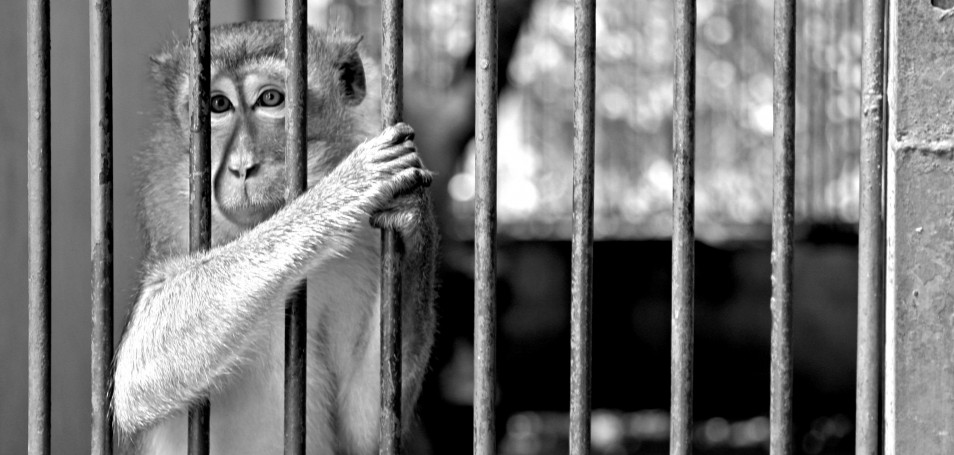
Start with a cage containing five monkeys. Inside the cage hang a banana on a string and place a set of stairs under it.
Before long, a monkey will go to the stairs and start to climb towards to the banana. As soon as he touches the stairs, spray all of the other monkeys with cold water.
After a while, another monkey makes an attempt with the same result – all the other monkeys are sprayed with cold water. Pretty soon, when another monkey tries to climb the stairs, the other monkeys will try to prevent it.
Now, put away the cold water. Remove one monkey from the cage and replace it with a new one.
The new monkey sees the banana and wants to climb the stairs. To his surprise and horror, all of the other monkeys attack him. After another attempt and attack, he knows that if he tries to climb the stairs, he will be assaulted.
Next, remove another of the original five monkeys and replace it with a new one. The newcomer goes to the stairs and is attacked. The previous newcomer takes part in the punishment with enthusiasm.
Likewise, replace a third monkey with a new one, then a fourth, then a fifth. Every time the newest monkey takes to the stairs, he is attacked. Most of the monkeys that are beating him have no idea why they were not permitted to climb the stairs or why they are participating in the beating of the new monkey.
After replacing all of the original monkeys, none of the remaining monkeys have ever been sprayed with cold water. Nevertheless, no monkey ever again approaches the stairs to try for the banana?
Why not? Because as far as they know that’s the way it’s always been done around here.
And that, my friends, is how company policy begins.
The most damaging phrase in the language is, “It’s always been done that way.”
—Admiral Grace Hopper (1906-1992)
Why Do You Do, What You Do?
Have you ever been in an environment where things are done a certain way only because “…it’s always been done that way“…? Or, perhaps, you are the one leading that type of environment?
Moving the thought from the group to the individual: What things do you personally do primarily because that’s the way it was done before you? Could it be that that’s the way you were taught? Or, you’ve simply recreated the same performance environment you played in?
The thought that we coach the way we were coached is one that I wrestle with quite a bit. And then, recently, a close friend took it a step further when he said to me, “We coach the way we were parented.”
[“Wow!” That’s a whole other level of deep. I’ll it to leave to Freud-ists to dissect that one.]
I do believe, though, as teacher-coaches we must become implicitly aware of our style of coaching and begin to understand whether it is best suited to the age and stage of athlete that you work with.
Don’t just do things because that’s the way it was done before you; or, because you had success with that approach 10 years ago. Continually assess and find new ways to engage the athletes and coaches you work with.
—sef.
PS. Don’t just take my word for it…
Italy’s top coaching academy consistently creates a pipeline of champions. And, there are two phrases that will get you kicked out of the program: (1) ‘in my day’ and (2) ‘my soccer’. Why? The fundamental belief is that the game is “dynamic, fluid, in a perpetual state of flux. Things change, and so must the coaches.”
It ain't what you don't know that gets you into trouble. It's what you know that just ain't so http://t.co/yNfXJ6M4rS pic.twitter.com/7jUwTHWDtG
— theLLaBB (@theLLaBB) October 8, 2014